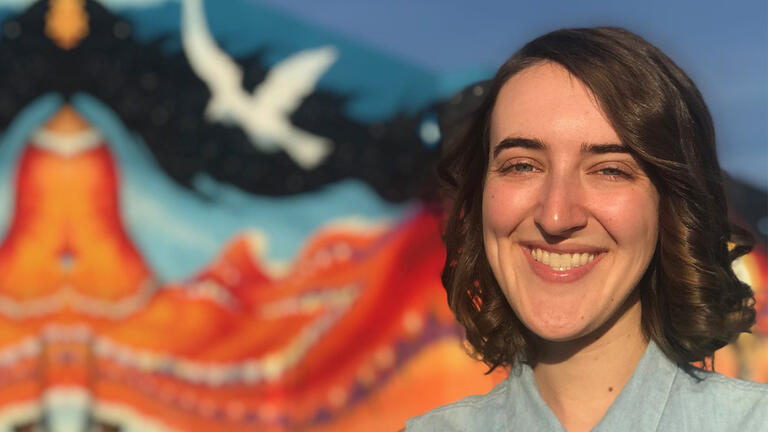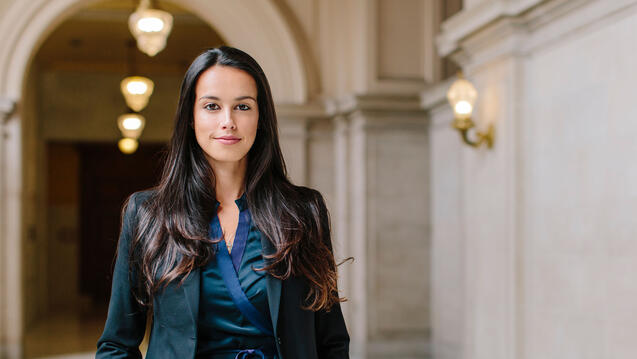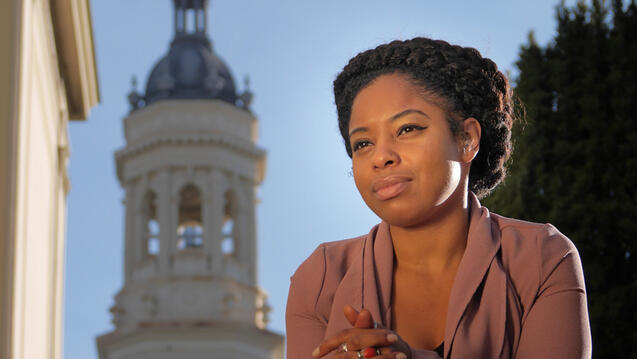
A Woman for Others
Casa Alitas is a nonprofit shelter in Arizona that provides short-term lodging and assistance to migrants who have just crossed the U.S. border.Through her work with the Jesuit Volunteer Corps at Casa Alitas, Ali Hofer '17 strives to develop herself as a woman for others. She says her experience in USF's sociology program and its emphasis in social justice has prepared her well for the important and rewarding work she's doing.
What's a typical day like for you at Casa Alitas?
I am one of two full-time site coordinators. On top of organizing the many volunteers that serve with us weekly, I also work directly with our guests, who have presented themselves at the border. Most are coming from Central America, and, after being processed by Immigration and Customs Enforcement (ICE), are granted "humanitarian parole," which means they are admitted for a short time into the U.S. to reunite with loved ones. Many go on to apply for asylum, as they are fleeing from persecution in their home countries. I help welcome them into the shelter and make sure they know they are safe, that they can shower, eat, wash their clothes, rest, and make phone calls to their families both here and back home. We help coordinate the purchase of Greyhound bus tickets so our guests can be reunited with their loves ones in other states.
How did the sociology program prepare you for your career?
The sociology program taught me the humility it takes to move through the world and not act like I know everything about a social issue. Even if I've been studying something in class, it takes being on the ground, working directly in the field you want to study that makes the difference. It makes it real. Being humble is a large part of my work as site coordinator. I'm working with people that have so much to teach me about the state of immigration, because they're the ones living it.
Working directly with our guests, to see their strength and bravery, is very humbling. It is impossible to turn a blind eye to the suffering and it presents many chances for advocacy. I have learned so much in such a short time and I hope to learn even more.
How did the sociology program emphasize social justice advocacy?
My classes, if they weren't explicitly about organizing people for a cause, taught me social justice by constantly checking for bias in my own research and papers. Additionally, they checked my own privileges and how my experiences affect the way I interpret the world, which may be correct for myself but not necessarily for others. There are more truths than my own, and I think recognizing that is an important first step in pursuing real social justice.
My senior year I had an internship working at Our Family Coalition, a local non profit that organizes LGBTQ parents and their children. It taught me the importance of identity, being welcome in a space, and the importance of the marginalized voice. Based on my own life experiences and what I've learned through my education, I think that if we don't listen to the needs of the people we want to help, we're not going to get anywhere.
What is the most transformative moment you've experienced at Casa Alitas?
It's always a challenging moment watching our guests climb up the steps of their bus, because I know that our time together is over and I may never see them again. But for the couple days that they stay with us at the shelter, I'm surprised at the relationships I can build with them.
I have met the "migrants" that are all over the news, and I know them as people. They are mothers and fathers, husbands and wives, small children, who all have their hopes and fears about leaving home and trying to settle again in the U.S. It's bittersweet to see them leave, because at once I am nervous for them to make it to their new home, but also so happy for them to be nearing their journey's end. Our lives crossed paths for just a short time, but I know that my life changes every time I see someone off at the bus station.


